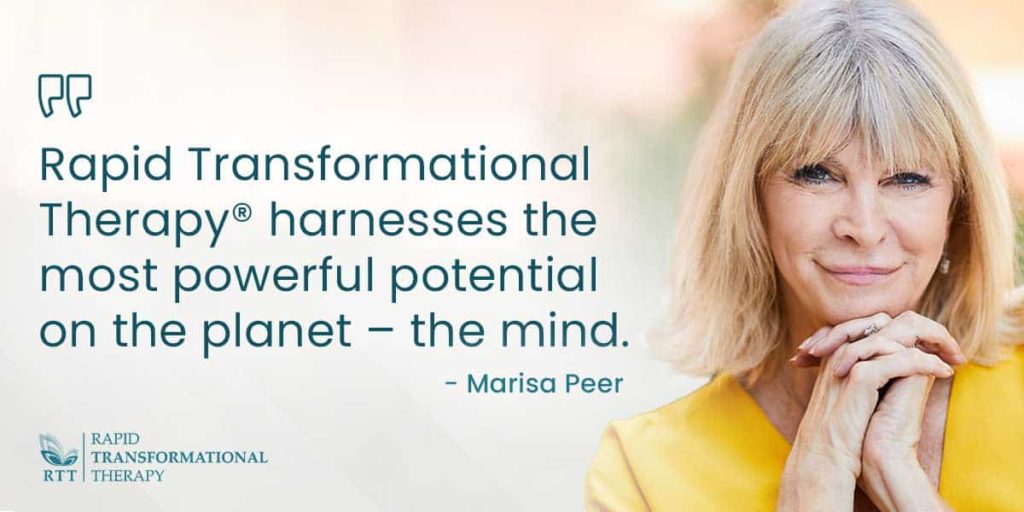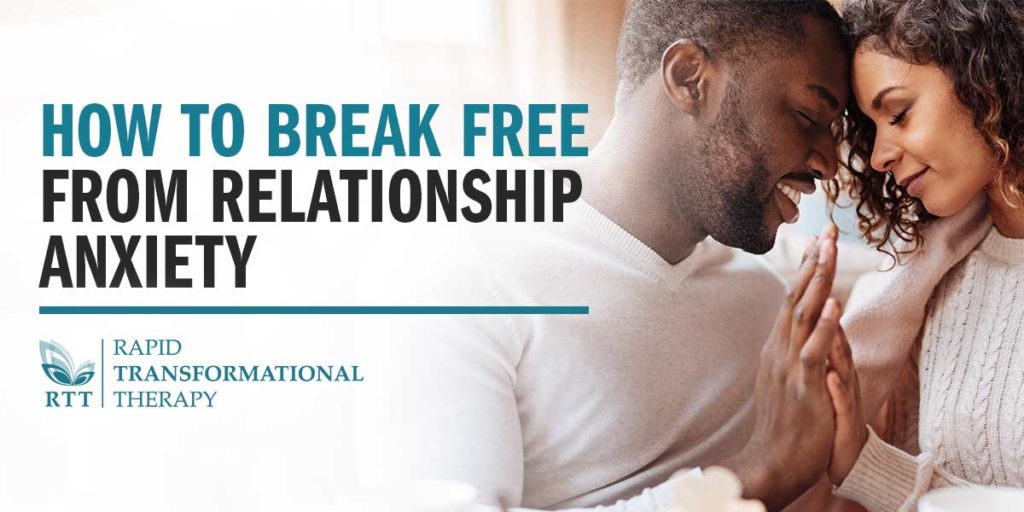Romance can send us walking on clouds. It sometimes feels like the best thing that has ever happened to us. Other times, it can trigger bouts of relationship anxiety.
Relationships, in general, have a way of bringing all of our insecurities to the surface. This is nothing but natural. Sometimes, however, dating anxiety turns into excessive worry that can jeopardize the relationship.
Have your relationships been affected by exaggerated insecurity? Do you always struggle to feel at ease about dating and relationships?
This article will show you how to get rid of relationship anxiety once and for all. Become one of the lucky people who enjoy the fulfillment of loving someone and being loved back.
Read on to find out:
- What relationship anxiety is
- What the signs of anxiety in relationships are
- Where the relationship anxiety comes from
- How to get rid of relationship anxiety
What Is Relationship Anxiety?

Being a tad unsure about yourself, your partner, or the relationship is expected. Especially when you just start dating someone and are getting to know them.
However, not being able to develop trust and relax in a relationship can become disproportionate. When insecurity becomes overwhelming and starts to affect the relationship’s quality, we speak of relationship anxiety.
Although relationship anxiety is not officially a disorder, those affected and therapists alike agree that it can be a severe issue. It does resemble anxiety disorders in some aspects, such as the inability to soothe fear.
The magnitude of the apprehension is what makes the distinction between the butterflies in your stomach and full-blown dating anxiety.
Relationship anxiety can appear at any point of romance.
Some people are so anxious about the mere idea of a relationship that they avoid it altogether.
Those that are fairly aware that they are dodging romance often say: “It’s not for me,” or, “I’m not into dating.” While others may not realize that they are anxious. However, they never seem to find someone they would go out on a date with.
Other people experience relationship anxiety in the first phase of romance when everything is still undefined.
A flood of doubt starts to pour in once you start developing interest in someone. “Will (s)he like me?” “Is (s)he a cheater/liar?” “Will we get along?” “Is this going too fast/slow?”—similar questions seem never to leave your side.
It’s also possible to develop (or maintain) anxiety well into the relationship. Then, the closer the partners get, the more the anxiety grows.
Sometimes, relationship anxiety results in the ending of an otherwise promising romance. To avoid that happening, read on and find out how to get rid of this nemesis.
What Are the Signs of Anxiety in Relationships?

Relationship anxiety can take many forms.
In some cases, it is easily recognizable. In others, it might be difficult to put a finger on what is causing your misfortune in love. This is because when you experience anxiety, both your conscious and subconscious minds get engaged.
The workings of a subconscious mind are hidden from us, —which is why you might not be able to point out the reasons for becoming anxious and simply shake the fear off.
Therefore, the most effective way to break free from relationship anxiety is to use an integrative approach, such as the one developed by Marisa Peer, a world-renowned therapist.
Her ground-breaking method, Rapid Transformational Therapy® (RTT®), can help you liberate yourself from relationship anxiety in as little as one to three sessions. It combines psychotherapy, neuroscience, and hypnotherapy to address both conscious and subconscious reasons behind relationship anxiety and reprograms your mind to build a fulfilling relationship.
RTT® is an overall solution that includes multiple therapeutic tools. Most importantly, it is completely adjustable to your individual needs.
In order to know what tools will be the best to use in your particular case, it is important to identify the symptoms you or your partner experience.
Here are some common signs of relationship anxiety that might have been holding you back from experiencing true love.
Excessive reassurance-seeking
We expect relationships to bring us the feeling of safety. We desire to be accepted and comforted in times of need. It is perfectly natural to seek reassurance in your partner’s love when you are feeling insecure. In cases of relationship anxiety, however, this behavior can become extreme.
If you cannot seem to find comfort in any of your partner’s words and actions, you might be experiencing anxiety in the relationship.
You might be convinced that they are going to leave you. You fear being alone because you are afraid that they are not going to come back. Or you could sometimes provoke guilt in your partner to make them reassure you and prove their love.
Your partner might repeat countless times that they are not going to leave. They reassure you, night and day, that they are very much in love with you. Yet, the relief is only temporary. The flood of fear of abandonment gushes back in in the following moment.
Self-silencing
On the opposite end of such clinginess is an attempt never to bring insecurities up.
Some people affected by relationship anxiety pretend that everything is alright—always. In this way, the anxious person avoids conflicts and expressing negative emotions. Moreover, they also evade real intimacy out of the fear it brings up in them.
Does it sound familiar? Do you often respond with “Nothing” when your partner asks you if anything is wrong? Or avoid having serious conversations with your partner? Do you shut down instead of opening up when you dislike something?
Read on to learn how Marisa Peer’s work can help you overcome anxiety and move towards close, rewarding relationships.
Overly suspicious behavior

Another typical sign of relationship anxiety is being too suspicious.
If your partner did cheat on you, being suspicious is somewhat justified. Nonetheless, if this is not the case, but you still constantly doubt your partner’s commitment, something else might be going on. People who are burdened by anxiety in relationships tend to be distrustful for no real reason.
What does this look like? You might be blowing situations out of proportion.
If your partner talks to other people, you interpret it as flirting. If they glance at someone while you’re taking a walk, you take it as a sign of interest. You read between the lines when they mention a coworker or a friend, searching for proof that they are dishonest and are cheating.
Whether you talk about it or not, the disproportionate mistrust is enough to qualify as relationship anxiety.
Sabotaging the relationship
To avoid the emotional pain that may come from a failed romance, some people knowingly or unknowingly sabotage their relationships.
On the outside, this sabotage can take many forms. Most of them appear entirely irrational to an outside eye.
For example, you might constantly be looking for flaws in your partner, focusing on them, and exaggerating them in your head. You could be provoking arguments with no cause. You withhold emotionally and avoid revealing your vulnerability. Sometimes, people with anxiety in relationships engage in transgressions, affairs, lying.
It might not be obvious why this is happening. The reason is to sabotage the relationship as a precaution.
Subconsciously, you are trying to protect yourself. Ending the relationship is supposed to help you avoid pain and deal with the unknown or unexpected in the relationship. However, at the same time, you are also sabotaging yourself from experiencing love and happiness.
Avoiding love altogether
Whether you do it consciously or subconsciously, avoidance of love is usually a sign of relationship anxiety. For some, it takes the form of never being able to find someone they would like or find deserving. For others, romance and relationships are not in their dictionary—at all.
They are the people who actively despise and reject this area of life and fully dedicate themselves to their career, studies, children, or a cause. Of course, these can be legitimate priorities in life. The difference is that anxious individuals directly reject any thought and prospect of romance, and they do so very rigidly.
There could be many reasons for them shying away from romance. They are typically intertwined with many causes of anxiety, from past trauma or fear of rejection to a lack of self-confidence. In the next section, we will address all of these causes in detail and show you how you can turn things around.
Where Did the Relationship Anxiety Come From?

For some people, anxiety in relationships has been a lifelong companion. For others, it is a part of the trauma aftermath. In any case, relationship anxiety, like any other form of anxiety, is an attempt at coping that got out of hand. Here are some of the relationship anxiety causes confirmed by science and psychotherapy practice.
Attachment style
As with many other issues we may face in life, relationship anxiety often comes from our childhood experiences.
The relationship we had with our parents formed an attachment style that has been reflected in all the significant relationships we ever had moving forward. In adulthood, our attachment style acts as a blueprint for how we relate to our partners.
According to research, the disorganized attachment is the most likely culprit for relationship anxiety.
Individuals who have this attachment style are very ambivalent. They desire closeness but fear rejection and hurt so badly that they act seemingly erratically. They feel debilitating anxiety in relationships and often behave in a “pull closer—push away” kind of way because of it.
Past trauma
Even when a person used to have a secure attachment style, traumatizing relationships can lead to relationship anxiety.
Studies found that trauma changes us. It can make us change our opinion on various issues—big and small. Our priorities could shift. We can start feeling differently about ourselves and others. It can affect how we act on a daily basis and what we do with our lives.
Unfortunately, in many cases, if a person does not receive professional help, the change is for the worse.
If you were involved in abusive relationships, you might be anxious about every new potential partner. If your ex cheated on you and betrayed you, it is no wonder if you become overly vigilant and expect the same hurt again.
The pain of past hurtful experiences in romance could be so grave that it makes you decide you do not want to be in relationships anymore—ever.
In reality, there are plenty of good, caring, decent people out there. With help from an experienced professional, an RTT® specialist therapist, you can turn trauma into growth and start loving without fear.
Lack of self-love and self-confidence
Anxiety in relationships is often a reflection of low self-confidence and appreciation for ourselves. Low recognition of our self-worth will inevitably lead to being insecure. How could we ask for or recognize others’ love and respect if we do not have it for ourselves?
There can be many paths connecting self-hate and relationship anxiety. Typically, what happens is a vicious cycle of a self-fulfilling prophecy.
For example, you started dating someone who you liked very much. However, you were full of self-doubt. Every step of the way, you looked for clues that they do not like you and would leave you.
On the inside, you were terrified and could not enjoy the relationship. On the outside, you acted in a way that your partner could not understand.
They showered you with love and affection. You, on the other hand, kept pushing them away or asking for more proof of commitment.
In the end, the relationship did not work out. Your belief about how unworthy or unlovable you were grew even more potent as a result. Luckily, this does not have to keep happening to you. There are proven ways to overcome relationship anxiety.
How Can I Deal With Relationship Anxiety?

The best way to address relationship anxiety is by tackling both its conscious and subconscious causes. The good news is you can get rid of the fear, for good. Even better, you can do it quickly if you have the right kind of help.
Here are a few powerful ways to deal with anxiety in relationships:
Practice meditation and mindfulness
Meditation trains the mind to be focused on the present moment. It helps gain clarity and puts you in charge of your emotions and reactions.
Meditation declutters the mind flooded with scary scenarios and “what if’s.”
Research shows that if you commit to regular mindful meditation for eight weeks, you will become less anxious and cope better with stress. Try Marisa Peer’s meditation and various mindfulness practices to see what works best for you.
Work on your communication and emotional intelligence skills
Anxiety in relationships can be associated with the inability to communicate your needs or understand and express emotions.
The great news is that you did not have to be born assertive or emotionally intelligent. These are both sets of skills that can be learned.
Develop your communication skills and emotional intelligence. This will help you understand and express yourself better and will ease the anxiety.
Work towards independence and self-confidence

Relationship anxiety is inextricably linked with dependence and low self-confidence.
When you are in the habit of putting yourself down and expecting adversities, you are enabling them to come. It is the rule of the mind—your every thought and word form a blueprint that your mind and body work to make your reality.
You can create a new, empowering blueprint. Learn to trust yourself, set clear boundaries, and understand who you are, as well as your wants and needs, so that you can take responsibility for your life. Anxiety will gradually become incompatible with your new positive mindset.
Try Marisa Peer’s ‘I Am Enough’ masterclass to help you focus your mind on your strengths and abilities. It is designed to dismiss fear, self-loathing, and insecurity by implanting a new, powerful belief—that you are enough. You do not need others’ reassurance. You are not weak or in need of comfort. The truth is, you are capable and lovable.
You are enough.
That simple but powerful phrase helped many people worldwide kickstart their lives. When you repeat “I am enough” to yourself, your mind will start having a hard time objecting to it. The award-winning ‘I Am Enough’ program will help you become the best version of YOU you can be.
Address subconscious fears and dysfunctional beliefs

Anxiety comes to you on the wave of dysfunctional beliefs and subconscious fears.
For example, you might have spent most of your life feeling unworthy. As a result, you probably allowed others to treat you poorly.
You could have also experienced the trauma of an abusive relationship. It is no wonder then that you are anxious in relationships, expecting to get hurt.
The truth is, you can change these limiting beliefs and address your subconscious fears with the help of an RTT® specialist therapist. You can make your mind work for you instead of against you. Imagine what your life will look like once you address your past hurts and start believing that you are deserving of love and happiness!
Attack anxiety head-on
Marisa Peer has developed fantastic tools you can use on your own to address relationship anxiety for good and prepare yourself for love.
Her ‘Overcome Anxiety’ hypnosis audio is a 25-minute guided self-hypnosis that will reprogram your mind to get rid of anxiety. It will code in a powerful sense of calmness and control. You will transform your mindset from within to allow you to be in a state of ease, comfort, and confidence.
However, the very best step you can take is to sign-up to Marisa Peer’s 21 Day Meaningful Relationship Challenge. In this challenge, you will firstly learn how to undo the mistruths about relationships you have learnt over the years, and learn how to develop (and keep!) the fulfilling and rewarding relationships you deserve. Click the banner below to find out more about the challenge, and then sign-up to let Marisa Peer guide you towards the relationship satisfaction you are seeking.

Go All-in and Love Bravely
Relationship anxiety can hamper your chances of true love and thus impoverish your life. Whether you have lived with it since forever or you became anxious about relationships after a hurtful experience—wait no longer. Thanks to Marisa’s work, you do not have to spend your life afraid of romance. Contact an RTT® specialist therapist, break free, and start loving bravely.


